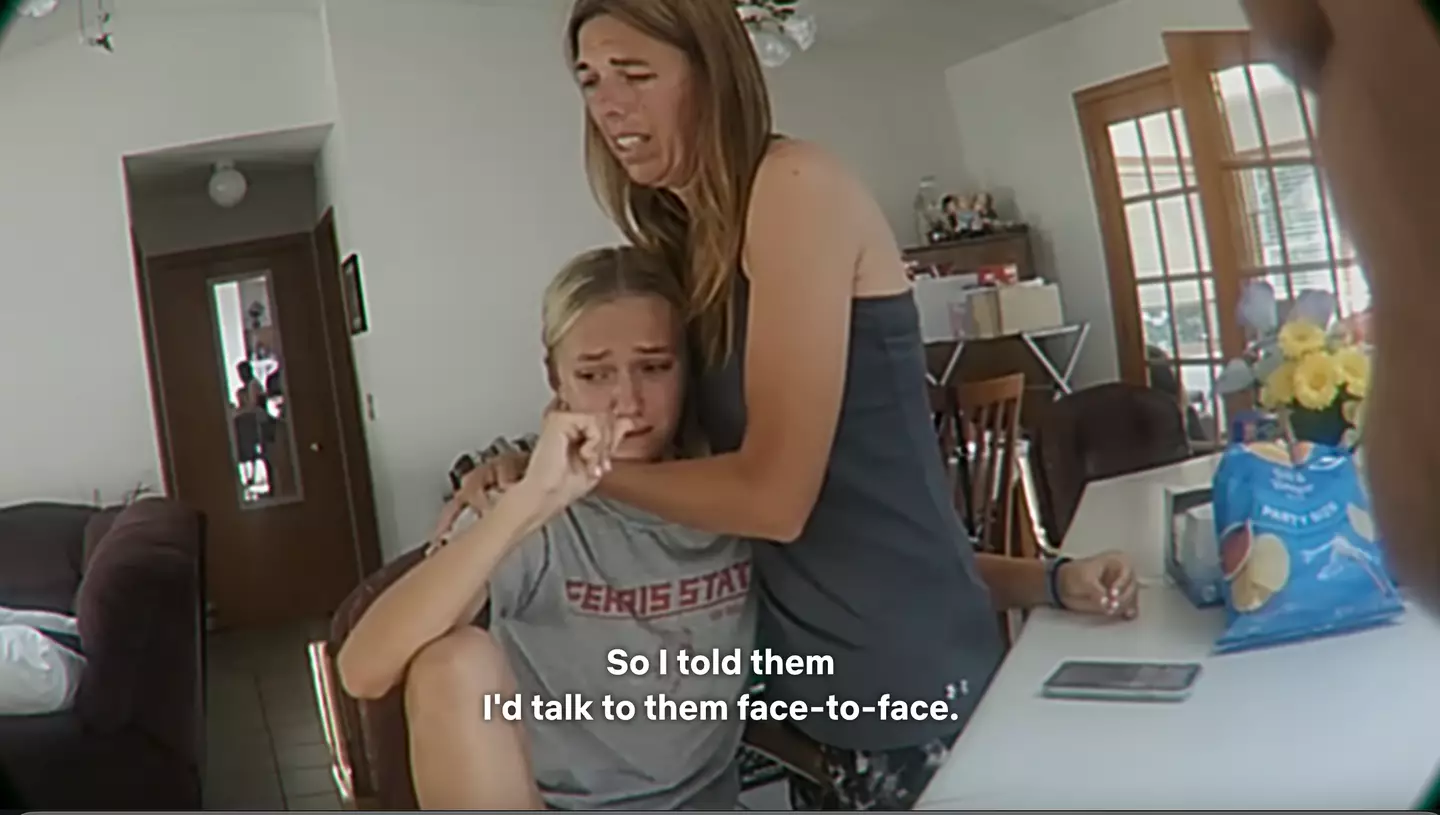There is speculation among experts that a psychological condition may have driven a Michigan mother to send disturbing text messages to her daughter for over a year.
The Netflix documentary, Unknown Number: The High School Catfish, explores the startling case of Kendra Licari, who engaged in cyberbullying against her daughter, Lauryn. This film has become the most popular on Netflix US since its release on Friday (August 29).
Lauryn, at the age of 13, and her then-boyfriend Owen McKenny began receiving threatening messages from an anonymous source in October 2020.
After a pause, the messages started again in September 2021 and persisted for 15 months. The texts were menacing, often containing sexually explicit content, and some urged Lauryn to harm herself.
The pressure caused a rift between Lauryn and Owen, leading to their breakup. When Owen found a new partner, she also fell victim to the cruel anonymous texter.

As parents sought answers, other school children were scrutinized regarding the messages. When both the school and local police could not identify the culprit, the FBI became involved.
The investigation led back to Licari’s phone number, despite her using a VPN (virtual private network) to hide her identity.
Licari denies initiating the texts but claims she continued them in 2021 to trace the original sender.
In the documentary, she confesses that she ‘didn’t know how to stop’ once she began.
Licari admitted guilt to two counts of stalking a minor in 2023, receiving a maximum sentence of five years. She was released in August 2024 and, as part of her plea agreement, is prohibited from contacting her daughter.
The notion of a mother sending such offensive messages to her child is difficult to comprehend, but some experts propose that a psychological disorder might have driven Licari’s actions.
Isabella County prosecutor David Barberi suggests that Licari might have been showing symptoms of ‘cyber’ Munchausen syndrome by proxy, now referred to as factitious disorder imposed on another.

The Mayo Clinic describes the mental health condition as when a caregiver creates or amplifies medical needs for a person under their care. However, Licari never received an official diagnosis of this disorder.
Although the precise cause remains uncertain to experts, it is often linked to experiences like past trauma, neglect, abuse, the loss of a caregiver, severe stress, or a need for attention from others.
Among the more notorious instances of Munchausen by proxy is the case of Dee Dee Blanchard, who deceived many into thinking her daughter Gypsy Rose Blanchard was gravely ill.
The new Netflix documentary speculates that Licari might have harassed her daughter to create a crisis, enabling her to assume the role of rescuer and fulfill a need to feel important.
The former superintendent of Beal City remarked in the documentary: “I think it was a cyber-Munchausen’s case. She wanted her daughter to need her in such a way that she was willing to hurt her.
“This is the way she chose to do that, versus physically trying to make her ill, which is typical Munchausen’s behaviour.”
Isabella County prosecutor David Barberi expressed agreement with this viewpoint.
Discussing the concept, director Skye Borgman told Netflix Tudum: “To give it any sort of medical foundation is a little bit problematic… But I think that there are elements about Munchausen by proxy – about harming someone to keep them close – that definitely existed.”
Unknown Number: The High School Catfish is available now on Netflix.

